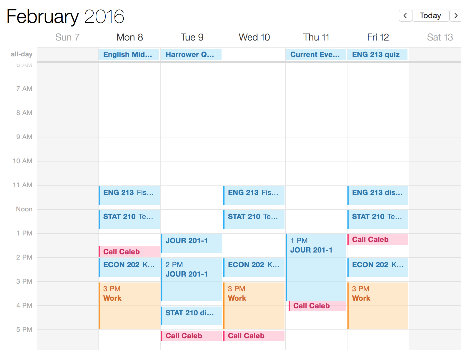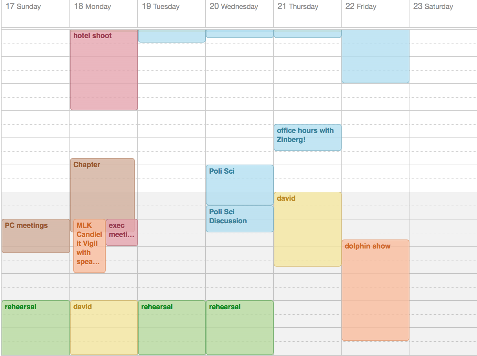We get it. We live in a fast-paced, digital age that is rewiring our brains to express our affection through emojis. An age where people can “ghost” one another – when someone we’ve been seeing stops answering their texts, leaving the ghostee wondering whether the person that was inside of them two weeks ago is now alive or dead because neither can be definitively proven. We make fun of ourselves and each other for our shameless Tinder swiping and Thursday night Deuce hookups, reading trendy articles about hookup culture and wondering if our generation has really become as blasé about finding something meaningful as pop culture leads us to believe.
While we can’t speak to everyone’s experiences, it turns out that, shockingly, we have not become numb to meaningful human connection. The cultural freedom to “randomly” hook-up with someone without fear of being labeled a “loose woman” or a “man-whore” is probably not what is preventing us from landing in that enviable relationship that we have all resented a good friend for being a part of (or maybe that’s just me?). In fact, plenty of people on this campus are actually in what most of us would deem a “successful” relationship.
But what does dating look like at Northwestern? A place that required us to assert our independence in order to gain a letter of acceptance. A place where we’re continuously referred to as “future leaders of society.” A place where we’re expected to not just be good at what we do but to be the best.
Since Northwestern is such a pre-professional place where students are so focused on their careers, we’ve come to view some aspects of our personal lives in these same terms. Dating, both in theory and in practice, is an investment of valuable energy (emotional, or otherwise) – with a significant other becoming someone to potentially restructure our promising futures around. When being pulled in the directions of extracurriculars, academics, internships, interviews and networking events, a boyfriend or a girlfriend can become another task to manage, another event on your iCalendar.
Is having to schedule a separate Google calendar event for your significant other “normal?” Well, based on a statistically unsound sample size, it is.
“I 100% schedule him in, ” said SESP junior Jacob Rosenblum. “I put him in my calendar. Like tonight I have a psych lab meeting and then I’m going to ‘The Drowsy Chaperone’ and meanwhile he has a mixer, and then he’s going out to a bar ... so he’s going to come over at 5:00 and hang out with me for thirty minutes before I go to my psych lab. It’s so tragic, but it works.”
With Google calendars that proudly display six or seven different colors corresponding to various clubs, workshops, Greek commitments, lectures and events, time can become a scarce commodity.

“We’re very time-conscious here, which I think makes relationships the hardest,” said Carlos Mucharraz, a Weinberg junior who has been dating his girlfriend since his senior year of high school. “If you bring in that significant other you know that’s going to take up a significant amount of time.”
Coming to a mutual understanding about one another’s schedules is ultimately essential for the success of the relationship. “We don't freak out when we get super busy but just try to squeeze in time together whenever possible,” said Communication sophomore Haley Baker, who has been dating her boyfriend since the beginning of the school year.
That being said, when also “dating” one’s homework, extracurricular activities, and internship/job applications, it is easy for one partner to begin to feel neglected. “I actually got yelled at last week for not making enough time, so it’s pretty pertinent,” said Weinberg junior Justin Farmer, who had been dating his girlfriend for only a few weeks at the time he was interviewed.
Long-distance relationships can become a similar logistical nightmare, with Skype dates and phone calls blocked off in between club meetings and classes.
“I think we both just have really busy schedules and we want to make sure the time we have together to talk is meaningful, so it needs to be a good time for both of us,” said Emily Ash, a Weinberg freshman. Any time spent away from campus to visit a significant other is time not spent focused on furthering oneself here; Ash explained how it takes her a week to catch up on work after being away for a weekend.
For those of us still looking to find love, even setting up a simple coffee date can warrant the creation of a When2Meet, as if we needed another reminder of how much free time we don’t have.
“I was trying to schedule a lunch date and sent at least 40 messages back and forth trying to find a thirty minute time period during the week when we were both free,” said Bienen freshman Jane Recker.
Beyond feeling like we don’t have the time to commit to another person, we don’t have the time or energy to deal with getting our hearts broken, a process that can require days or weeks of angry rants and ice cream binges and other comforts we don’t have time for. In that sense, only a relationship with long-term viability is seen as worth the risk.
“When you get hurt you have to spend the emotional time dealing with it and picking yourself back up and maybe you fall behind tomorrow because you’re not emotionally all there – if you consider yourself very busy or very stressed you’re not going to put in that time or that energy,” said Mucharraz, who appreciated the way in which his partner balances out his academic and pre-professional intensity.
While flirtatious texts sent back and forth and awkward semi-hugs on Sheridan are great and all, getting to know and developing feelings for another person requires a substantial amount of time and energy. The idea of the relationship coming to an untimely end therefore becomes terrifying not just because of the prospect of getting hurt, but because of the idea of having wasted valuable time.

“I want him to be perfectly aware that I don’t have the energy to be with someone who I don’t have until at least the end of college with,” Medill junior Alix Kramer explained. “Obviously I’ve had the best experience and have the best memories and stuff, but it would suck to have to start over with someone else. I’m just too tired.”
At a school where we are expected to be intensely involved with at least one extracurricular activity, hopefully related to our major, hopefully related to our future career, a relationship can serve as a reprieve from the intensity of everyday life – a quality that is not possible if one person is substantially more independent than the other.
“It’s very important that she recognizes that I have a lot going on and she also does too so that neither of us are a burden on the other person or neither of us feel neglected,” Farmer said. “I don’t want to be someone’s entire world.”
Perhaps the most toxic mentality of all is the fear of settling, the pervasive idea that what we have currently isn’t as good as it gets. That maybe there is somebody on this campus – or outside of it – who would make us laugh harder, who would make us feel more attractive, who would provide us with the ability to create a better version of our promising future lives.
“People think it’s not part of the vision of college to commit to someone because ‘you’re not supposed to settle at this time,’ because that would mean settling for less,” Mucharraz said.
When asked how they knew that their significant others were “good enough,” the responses were almost too jealousy-inducing to print. “He’s what I would have imagined my twelve-year-old self would have thought of as the ideal boyfriend,” Ash said. “When I step back and look at it he’s literally everything I’ve always wanted.”
While striving for more might be logical when trying to raise our midterm grade from a B+ or an A-, at Northwestern, the same logic does not necessarily carry over to trying to upgrade a significant other.
“Sometimes when what you have is actually really good, you don’t have to keep looking,” Mucharraz concluded.